#montereau
Text

Monastery near Kyiv, Ukraine
Russian vintage postcard, mailed in 1901 to Montereau, France
#vintage#tarjeta#france#briefkaart#kyiv#postcard#photography#postal#carte postale#ukraine#sepia#montereau#monastery#ephemera#near#historic#russian#1901#ansichtskarte#postkarte#postkaart#mailed#photo
142 notes
·
View notes
Photo

Montereau-Fault-Yonne, le quartier Surville.
#montereau#montereau fault yonne#banlieue#banlieue parisienne#surville#Architecture#brutalisme#seine et marne#grands ensembles#retro géographie
171 notes
·
View notes
Photo

Napoleon directing the cannon at Montereau.
pinterest>metropostcard.com
12 notes
·
View notes
Photo

Qui a connu boulanger ambulant, qui klaxonnait pour vendre son pain? <3 Quel était le nom du village où passait le boulanger ambulant lorsque vous étiez enfant... 🤔 #nostalgie #enfance #boulangerie #ambulante #boulanger #ambulant #tontongrill #baguette #pain #tonton #montereaufaultyonne #montereau #quaidyonne #Confluent #restaurantmontereau #restaurant (à Tonton GRILL) https://www.instagram.com/p/Cj20MQVqko-/?igshid=NGJjMDIxMWI=
#nostalgie#enfance#boulangerie#ambulante#boulanger#ambulant#tontongrill#baguette#pain#tonton#montereaufaultyonne#montereau#quaidyonne#confluent#restaurantmontereau#restaurant
4 notes
·
View notes
Photo
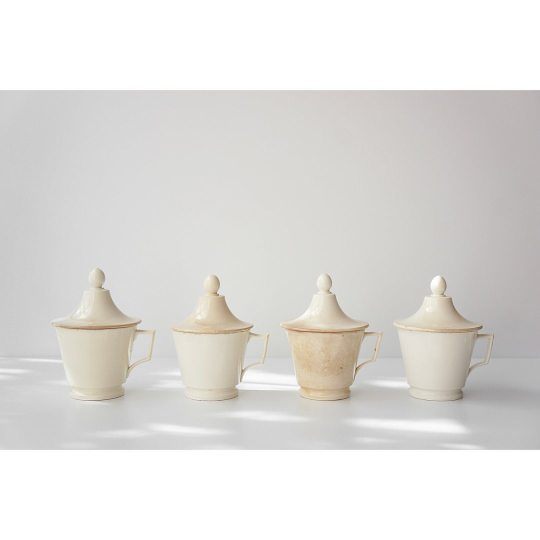
. . Rare Cream Pot / Montereau / -1820 FRANCE . . 繊細に薄く丁寧に作られたファイアンスフィヌのモントロー製のクリームポット。 職人の誠実な思いが感じられます。 . Cup : Φ6.5cm / Lid : Φ7.1cm W8cm x D7.1cm x H5.7cm(+Lid10cm) *それぞれのサイズがございます。 . ¥16500(¥15000+tax) / Each / 4 available . . #montereau #faiencefine #creampot #hgrs https://www.instagram.com/p/ClIbfeZvc4n/?igshid=NGJjMDIxMWI=
0 notes
Photo

Bonjour Venez nous retrouver au marché de producteurs et artisanat de Montereau 45. Il fait beau et beaucoup de belle choses à voir #montereau #marchéproducteurs #artisanat (at Montereau 45260) https://www.instagram.com/p/CdirOlmMyzN/?igshid=NGJjMDIxMWI=
0 notes
Text
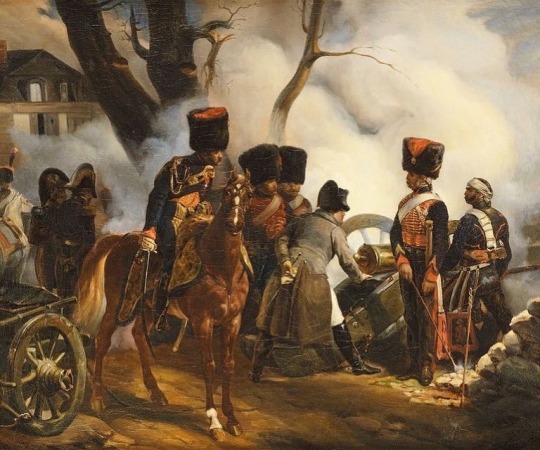
Napoleon at the Battle of Montereau by Horace Vernet
#napoléon#napoleon#bonaparte#emperor#battle of montereau#art#horace vernet#napoleon bonaparte#napoléon bonaparte#napoleonic wars#france#french#empire#history#europe#european#napoleonic#cannon#artillery#cannons#campaign of france#1814#campaign#french empire#first french empire
133 notes
·
View notes
Text



Ansichtskarte / Vintage Postcard / Carte Postale
Montereau-Fault-Yonne (S.-et.-M.)
1589 - Les H.L.M.
Architectes : Les Frères Arsene Henry -
B. Schoeller - J. Faugeron (C) by SPADEM
PARIS
(67) Cie des Arts Photomécaniques, 44 r. Leteiller, Paris-15e
#Philokartie#Architekturphilokartie#Frankfreich#Frankreichphilokartie#Neubaublock#Ansichtskartenfotografie#deltiology#deltiologia#Cartophilie#Edicap#Arsene Henry#HLM#Cie des Artes#Montereau-Fault-Yvonne#Montereau Fault Yonne
204 notes
·
View notes
Text

Battle of Montereau 1814
83 notes
·
View notes
Text
Theory: Cinder is the king Jaune's Joan of Arc is looking for
*sniffs*
Ah, nice clean air over here, time to pollute it with some more Knightfall speculations.
Cinder as king Charles VII (king Joan of Arc helped) is something I brought up in several of my theories, most notably Indecisive King one (that I will link below).
However, in those theories I mostly just briefly touch the subject or in case of Indecisive King theory I mostly talk about parallels between Joan of Arc and Indecisive King story. I wanted to make comprehensive theory on why do I think Cinder is Charles VII in vacuum of Joan of Arc story. Some points will inevitably be repeated from previous theories.
CHILDHOOD:
Charles was born in hotel Saint Pol, French royal residence. This of course could all be massive coincidence, but just as same could be the reason why writers chose Cinder's childhood to be in Glass Unicorn, another hotel. Cinder's backstory is relatively straight forward Cinderella story, so when you change setting from private residence to hotel, it does stick out. Devil's advocate within me tells me that can be explained by writers wanting for her abuse to be public so it can fuel her later resentment towards the world. But at the same time, of all places one can be publicly abused in, they chose hotel. Another direct parallel is that both end up permanently leaving it at age 15 (although this one can be explained by them wanting to give Cinder same age as Ruby when her story truly begins), never to return, but let's not get ahead of ourselves.
Charles was 11th child of Charles VI and Isabeau of Bavaria, but for the sake of the argument, he is the third child because girls are stinky and don't matter in French succession laws. This greatly diminished his position and he was never expected to amount to much besides ruling a duchy. However, his position was greatly improved due to deaths of both of his older brothers, making him heir apparent. Unlike Cinder, Charles had nothing to do with their deaths but his political opponents did accuse his faction of poisoning both of them. So we have another parallel, albeit weaker one: both were raised in shadow of 2 older siblings who ended up dying young.
____________________________________________________________
Charles became heir to the throne at age 14, or Dauphin (and to avoid confusion, I will from now on refer to him as such). Another benefit of becoming Dauphin is that he became regent to his father Charles VI, who was suffering from severe mental illness. However, his mother wanted to rule instead of him as a regent creating a rift between them. Dauphin put his mother under house arrest and took over as sole regent. His mother would never forgive him this and became his political enemy. She allied herself with duke of Burgundy, John the Fearless, another one of Dauphin's political opponents. John and his forces entered Paris and attempted to capture Dauphin who managed to escape. This is where his escape from hotel Saint Pol and slanders about his faction killing his brothers come from. Dauphin and John attempted to reconcile their differences, but at one of their meetings, at Montereau, Dauphin's men murdered John.
This has several parallels. First of all, both Dauphin and Cinder had bad relationship with their mothers, being their enemy in both cases. Rift emerging due to said mothers wanting to control them. Although resolution of conflict is different, Dauphin puts his mother under house arrest, while Cinder had more... permanent solution. This is where John the Fearless comes in, or in Cinder's case Rhodes. Both are model warriors of their respective cultures (former was crusading knight, latter was huntsman) that came after Dauphin/Cinder to capture them for their transgressions. Their capture attempt failed, leading to their eventual deaths. You can even draw a small parallel between Dauphin attempted reconciliation with John and Cinder pleading with Rhodes, both of which failed. That's one interpretation of end of Cinder's flashback events, here comes another.
The fact Dauphin murdered duke of Burgundy destroyed his reputation. Duke's son Philipp started negotiating with English and gave them his support. Together, English, Burgundians, king Charles VI and Isabeau of Bavaria concluded Treaty of Troyes, which disinherited Dauphin and made English de facto rulers of France. Upon subsequent failing to appear in front of court, Dauphin was also declared traitor, outlaw and was banished from the realm.
When you combine this with previous incident of Dauphin murdering duke of Burgundy, you get alternative read of the events. Duke of Burgundy is now Madame instead of Rhodes, who takes the role of king Charles, intervening after murder happened. Reason I feel Rhodes is good read for Charles VI is because both characters are relatively inactive up until this moment of the story (Rhodes knew Cinder was abused yet did bare minimum, Charles VI on the other hand was mostly a puppet of powerful nobles like duke of Burgundy), both are father figures (or literal father in Charles' case), both took Dauphin/Cinder under their wing as their successors, both disinherited and declared Dauphin/Cinder an outlaw after they murdered someone. Either way you read it, parallel stands. Both Dauphin and Cinder lashed out and murdered person trying to control them and as a result became an outlaw and abandoned by their father figures.
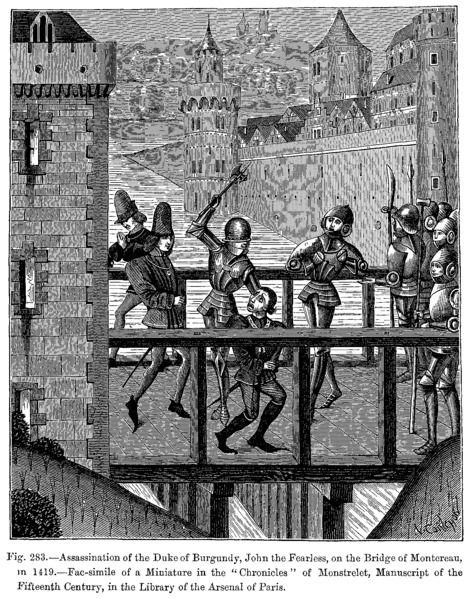
RISE TO POWER:
Combined force of Burgundians and English forced Dauphin to escape to Southern France where he had much more support thanks to his connections to Anjou dynasty. His main benefactor was Yolande of Aragon, powerful queen dowager and so called Queen of Four Kingdoms (Aragon, Sicily, Cyprus, Jerusalem). She had massive influence on Dauphin and became a mother figure to him.
Now, we don't now how Cinder started working for Salem, but considering last time we saw her in her flashback she was wanted criminal, it's safe to say she was either saved by Salem or somehow sought her out. Whatever happened out of these two interpretations, it matches with Dauphin taking refuge in Yolande's lands and her protecting him. Similarities between Yolande and Salem are simple but obvious: both are powerful queen dowagers, both are mother figures to Dauphin/Cinder. Even Yolande holding title Queen of Four Kingdoms works with Salem, being most powerful being in all of Remnant's four kingdoms. Difference is that Yolande was mostly benevolent towards Dauphin (although Yolande was political realist and did lot of it for her own benefit), while Salem was shown to be highly abusive towards Cinder, mirroring Madame's treatment.
__________________________________________________________
When his father died in 1422, Dauphin proclaimed himself King of France, despite losing that right due to Treaty of Troyes. On top of that, Dauphin could not be properly crowned due to traditional French relics being held in hostile territory in Rheims. This made his claim lack legitimacy, especially considering newborn English King Henry VI was also proclaimed the King of France. During the ceremony, he married Yolande's daughter Marie, becoming Yolande's son in law.
I've mentioned this several times in my theories, but Maidens are basically royalty. Not under all circumstances, but they definitely are when looked through the lens of medieval Europe. Kings were God's emissaries on Earth which gave them legitimacy among the common people. Similar to that, Maiden powers have divine origin. Both are transferred hereditarily and in the story number of Maidens matches number of kingdoms. I hold similar stance for Silver eyes and Ozma's incarnations. So Cinder proclaiming herself Fall Maiden does fit Dauphin proclaiming himself king of France.
Both of their seizures of power go against the established law (Dauphin defying Treaty of Troyes, Cinder defying both Amber's and Ozpin's choice). In both cases there is a catch to their seizure of power: Dauphin cannot reap the full benefits of being the king due to lack of legitimacy, Cinder cannot fully use Maiden powers due to only having half of them. Since Cinder's attack on Amber happens before plot begins, it's also possible her ages matches that of Dauphin when he proclaimed himself the King, 19 (Cinder is in early to mid twenties at the beginning of the show, if event takes place few years back it is entirely possible). Dauphin's lack of legitimacy can be translated again to Cinder after she fully takes Fall Maiden powers but is unable to locate "her" relic, Crown of Choice. Just like Dauphin is King without the crown, so is Cinder Maiden without the Crown.
Marriage to Yolande's daughter is less clear parallel, but I feel like this relates to Cinder's grimmification. Dauphin is married to Marie after proclaiming himself as King of France while Cinder ends up grimmified in immediate aftermath of obtaining Fall Maiden power. Salem is Queen of Grimm and was shown to be control them, making them effectively her children. Grimmification is something that binds Cinder to Salem, just like marriage to Marie binds Dauphin to Yolande as family.
Another parallel comes from other claimant for the French throne, newborn Henry VI. Due to being newborn, decision making was delegated to his regent, Duke of Bedford. This is double parallel. One is to Amber, direct rival to Fall Maiden power who due to her coma was unable to make any decisions on her own (making Ozpin her regent). Amber also held her power "legally" (and Henry VI is technically legal ruler due to Treaty of Troyes) while Cinder is usurper. Other parallel is to Ruby, being more significant rival to Cinder. This works with their age gap (although not as massive as with Dauphin and Henry), especially since Cinder derisively refers to her as a child. Other is symbolic, both Henry and Ruby have rose as family emblem.
______________________________________________________________
Dauphin would attempt to seize the rest of the France on several occasions. At first having some success (and getting some important alliances through Yolande's diplomacy), but suffering series of devastating defeats like those at Cravant (1423) and Verneuil (1424). Eventually, Burgundians and English would go on offensive and attack Dauphin's holdings, starting the siege of Orleans (1428).
This is pretty straightforward: Cinder's main goal is seizing all Maiden powers and she had exactly zero success with that after seizing Fall Maiden power back in Volume 3. Additionally, she is yet to seize the Crown or even find out where it is. This matches Dauphin being unable to become sole legitimate ruler of France or be properly crowned. In both battles of Cravant and Verneuil, French had massive numerical advantage, but lost to superior Anglo-Burgundian leadership. This matches to Cinder getting foiled both at Haven and Atlas. You might argue she won at Atlas, but not really. Salem won, being given two Relics, Cinder's long term goals went unaccomplished. Initially successful diplomatic game Dauphin's side had can also be paralleled to White Fang and Bramwen tribe temporarily allying themselves with Cinder. But just like in Dauphin's case, that advantage has been lost with entire Remnant now uniting to combat the threat of Salem.
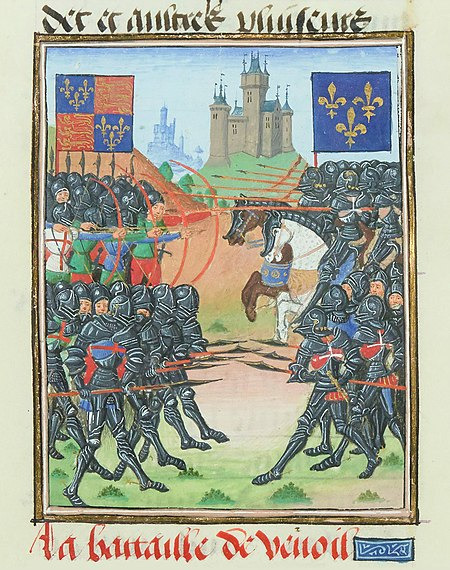
UNWORTHY KING:
In this section I will go over some known Dauphin's traits. He was described as notoriously weak, passive and indecisive man. Hesitant to take action and reliant on advice of his court favorites. He lacked real authority which was even exploited by his various subjects (there were several cases in which King had to ransom his own servants after his commanders captured them). This is mixed bag when compared to Cinder.
On the one hand, you do have parallel of both Dauphin and Cinder always being under someone's control (Armagnac faction, Yolande and powerful advisors like Tremoille in Dauphin's case, Madame and Salem in Cinder's). On top of that, there is some illusion of freedom in both cases. Dauphin thought he'd be free after he imprisoned his mother and killed his political rival, yet he simply felt under control of different individuals. Similarly, Cinder thought she was free after she killed Madame and Rhodes, only to end up in similar relationship with Salem.
However, passivity is something that's hard to come by with Cinder. She is one of the most active and goal oriented characters in the entire story. Indecisiveness also doesn't fit, but I feel like this one is only temporary. Cinder will eventually have to face the prospect that her quest for power is completely doomed and without any plausible winning scenario (No matter how things play out, she'll either end up as Grimm or die fighting). If this does happen, then you can be sure as hell indecisiveness will show up. Highly detrimental passivity and indecisiveness are traits that parallel Dauphin more with Indecisive King from the Remnant fairy tale of the same name (Which I theorized is based on Joan of Arc story).
Lack of authority is interesting one. Cinder wants to control everything around her, best seen with her attempts with Emerald and Mercury. However, more often than not, her comrades show minimal respect for her (Tyrian, Neo, Watts) and she is abandoned even by her supposedly loyal cohort (Emerald left her, Mercury distanced himself from her). So despite her best attempts, she does indeed lack authority.
______________________________________________________________
Another important aspect of Dauphin is his worthiness. Back before he even killed John the Fearless, there were malicious rumors about him made by his political opponents. Basically, they claimed he wasn't Charles' son, instead, he was bastard child of Duke of Orleans, his uncle. This narrative was popularized after he became an outlaw and was basically treated like an open secret. Although this rumor was popular among his enemies, it was never made official due to them not wanting to embarrass King Charles VI by implying he was cucked by his brother. Dauphin at some point started losing the faith in his cause, even potentially starting to believe he was indeed a bastard. Why do I say the latter? When he first met Joan of Arc, he somewhat believed her but was hesitant. However, one day, she whispered something in his ear, something so important he put full faith in her abilities. Joan would never reveal what she said to him, even at her heresy trial. However, Dauphin would reveal it years later when he met Joan of Arc impostor. He asked her what secret did she whisper to him when they met in Chinon. Impostor immediately revealed herself to be fake and King revealed real Joan said "you are rightful king". So King did in fact at some point have massive doubts in his worthiness.
Ok, what does this have to do with Cinder. Very simple, lack of self worth is one of Cinder's most important traits. This is best seen with her mantra she repeats with both Madame and Salem (without you I am nothing...), but more importantly in her interaction with Watts in Volume 8. After Watts calls her unworthy, she lashed out at him and then broke down crying. Cinder is essentially deluding herself into thinking she'll only be worth something if she has all the power in the world. She needs someone to tell her that she doesn't, that she is already worthy. Who better to tell her than person who also has massive self worth issues due to their perceived lack of strength (and is blond and Joan of Arc shaped). Additionally, this is in line with Fall Maiden lesson from Tale of the Seasons, another Remnant fairy tale. Fall Maiden teaches Old Man that he should be satisfied with what he's already got.
Another thing to throw in here is conspiracy theory from Joan of Arc era. Might seem bit random, but what the hell, when am I ever gonna talk about this. Basically, people speculated what did Joan say to the King. Most popular theory was that she revealed she was also Duke of Orleans' bastard child and his half sister. This works interestingly with Jaune and Cinder. Not saying Jaune is gonna drop a bombshell and reveal Cinder is his half sister, more that he is gonna reveal to her that they are same. Jaune and Cinder as characters have several major parallels (aforementioned lack of self worth, lamentation of their weakeness, experienced bullying, forced by circumstances to commit their first murder, emotional isolation, etc), their defining moment will be Jaune revealing to Cinder that he understands what she went through, leading to her redemption.
______________________________________________________________
Last thing I want to cover is first meeting between Joan and Dauphin. He heard rumors about Joan being supposedly divinely guided and wanted to test that. He dressed himself as one of his courtiers and had courtier take his place in the room. Since Joan never met Dauphin, expectation was she wouldn't realize swap has been made. However, to everyone's shock, Joan walked up to supposed courtier and referred to him as Dauphin, seeing through his ruse.
While there are some parallels here between Cinder and Dauphin with both wearing both literal and symbolic disguise (and Joan/Jaune seeing through it), what I wanted to focus on is parallel to Cinderella story, more specifically Grimm version. Prince was capable of seeing through Stepsister's ruse (in Grimm version they mangled their feet to fit the slipper unlike Perrault version where it doesn't fit) thanks to warning from doves. Similarly, Joan is capable of seeing through Dauphin's ruse thanks to her Voices (and doves are associated with God in Christianity, so both are essentially divinely guided). Both are then guided to pick most unlikely looking option, that turns out to be the person they are looking for. There is an interesting inversion between Dauphin being real king but fake servant and Cinderella being fake princess but real servant.
_____________________________________________________________
Anyways, I rambled enough about this for today. I wanted to cover Dauphin's story from his childhood to meeting Joan and draw every possible parallel I can think of between Dauphin and Cinder. As usual feel free to comment if you feel like I missed something or you have your own interpretation.
17 notes
·
View notes
Note
Hi, i have seen in one of your posts that once Napoleon intended to take Eugene's family hostage. Why was that? Their relationship is always potrayed as good so why would be plan to threaten his stepson. I always had a feeling that napoleon's relationship with his stepkids are not as amazing as potrayed
(Now look at me. Barely three weeks have passed, and I'm already getting back to you... I'm sorry. I suck.)
I've written a bit about this before, so with your permission, I will mostly summarize and link to older posts for the details.
For context: This happened in late February 1814, with allied forces invading both France (where Napoleon was) and Italy (that Eugène obstinately had refused to leave). But it goes back to autumn 1813, when German newspapers openly started to speculate about Napoleon's two "Italians" - Murat in Naples and Eugène in Milan - both abandonning Napoleon and joining the Allies.
To some degree, spreading such rumours surely was a deliberate political move, an attempt to sow distrust among the enemy. (And it worked. Hortense already wrote about offers being made to Eugène weeks before he actually received them...) But to some degree, they were based on facts. Murat really was negotiating with the Austrians and would come to an agreement with them. And after the Battle of Leipzig in October 1813, Eugène's father in law King Max of Bavaria had spoken very much in favour of his son-in-law and tried to score a few points for him with the Allies. Resulting in the offer made to Eugène in November 1813 ("leave Napoleon, get a crown!") that Eugène, however, refused.
But the distrust in the French camp seems to have been very real. In some aspects, Eugène may have looked like the most likely candidate to leave Napoleon's side:
Napoleon had dumped Josephine.
Napoleon had broken his promise to make Eugène the heir to the Kingdom of Italy.
Eugène had been very irritated about the way Napoleon critisized his actions in Germany in spring 1813.
Eugène was related to one of the monarchs in the Allied camp, even best buddies with his father-in-law, and likely to be received well among the Allies, probably better than Murat.
So when Eugène did not immediately follow Napoleon's order to evacuate Italy (no matter his reasons), Napoleon already felt the need to bring out the heavy emotional artillery: Both Josephine and Hortense were told to write to Eugène and to tell him to obey to this order (an order that neither of the two ladies had any knowledge of, by the way). This in turn wounded Eugène deeply; he felt that, while he was doing everything in his power to help Napoleon, and refusing very real advantages offered to him for the sake of loyalty, he met with nothing but distrust and ingratitude.
So, Napoleon in Paris thought: "The boy is up to something down there in Milan, he's going his own ways, I cannot control him as I would love to." And Eugène in Milan thought: "The Emperor is ungrateful, and no matter what I do and how often I prove my loyalty to him, he will never believe me, let alone thank me for anything I do."
Let's add that Auguste, Eugène's beloved wife, was pregnant again. And briefly after the letters Josephine and Hortense had written to him, that he clearly saw as a sign of Napoleon's distrust, Eugène received the following missive from his Imperial stepfather:
Napoleon to Eugène. Château de Surville close to Montereau. February 19, 1814
My son, the vice queen must immediately go to Paris for her delivery; my intention being that under no circumstances she should remain in a country occupied by the enemy: therefore, make her leave immediately. [...]
Frankly, when I read that order in the course of Eugène's correspondence, right after the incidents explained above, my first understanding was precisely like theirs: that Napoleon wanted to get a hold of Auguste and the children, in order to assure Eugène's obedience.
If that really was Napoleon's intention? I do not know. Quite possibly not. He was always telling women to come to Paris in order to have their babies. Josephine and Hortense had already asked if Auguste would leave endangered Italy and come to Paris. But such an explicit and abrupt order, in that tense situation, did indeed look like a threat. Plus, Eugène and Auguste may have had a bit of a bad conscience, too, as Eugène had contacted the Austrians and asked them to guarantee the personal security of his family in case something happened to him - and that was something he apparently had not told Napoleon about. Napoleon most likely had learned of it anyway.
Anyway, this resulted in an exasperated Auguste writing a letter to Napoleon, in which she finally allowed herself to let loose all her grievances against him, on behalf of herself and on behalf of her husband. I have quoted it in full in the course of this post. Here are some highlights:
Auguste to Napoleon. Milan, February 27, 1814.
Sire, Eugène has just communicated to me the order given to him by Your Majesty: it surprised me greatly, for I did not expect that after all the proofs of attachment Eugène never ceases to give you, you would also demand of him to risk the health and even the life of his wife and children, the only asset and consolation he has in this world. If he does not speak on this occasion, it is for me to do so.
("If he doesn't speak up on this occasion" - insert a slightly annoyed "as usual" 😁.)
Without doubt I know his and my duties towards Your Majesty. We have demonstrated this to you often enough, and we have never failed to do so; our conduct is known to all; we do not resort to intrigue, and we have no other guides than honour and virtue. It is a sad fact that our reward has been nothing but sorrow and mortification [...]
What have I done to deserve such a harsh order of departure? When I got married, I never thought that things would come to this. [...]
Remember all the bullshit you promised me in Munich in 1806? Well, I do!
In spite of this I will obey your orders, I will leave Milan if the enemies should come here; but my duty, my heart, makes it a law not to leave my husband, and, since you demand that I risk my health, I want at least to have the consolation of ending my days in the arms of the one who possesses all my tenderness and who makes all my happiness.
Whatever his fate will be, I will share it, and it will always be worthy of envy, since we will be able to say to each other that we have deserved a happier one, and that we will have a conscience without reproach. [...]
Napoleon's reaction to this missive (and a similar from Eugène) seems genuinely confused (see the link above) - "What's up with you two? What have I done this time? All I said was: Come to Paris!" - so maybe he really never had the intention Auguste and Eugène read in this order.
But who knows. If there was ever a human who qualified as a "political animal", it was Napoleon.
I hope this is still of interest to you after all the time it took me to come up with this answer, and thank you once more for your interest in "the boy".
16 notes
·
View notes
Text

Street scene in Montereau, Gâtinais region of France
French vintage postcard
#vintage#tarjeta#france#gâtinais#briefkaart#street#postcard#photography#region#postal#carte postale#sepia#montereau#ephemera#gtinais#historic#french#ansichtskarte#postkarte#scene#postkaart#photo
2 notes
·
View notes
Text
Blanche de Navarre
A month after Marie's death in March 1198, a throng of barons accompanied nineteen-year-old Thibaut III to Melun, where he did homage for his lands and was knighted by the king. A year later the young count married Blanche of Navarre, the younger sister of Richard the Lionheart's widow Berengaria. Attending the magnificent ceremony in Chartres cathedral were the dowager queens Berengaria of England and Adèle of France (Thibaut's aunts), as well as many prelates and barons. The jubilation was short-lived, however, for Thibaut died in May 1201 while preparing to lead the Fourth Crusade. He left twenty-year-old Blanche a widow in the last week of her second pregnancy. For the next twenty-one years she would guide the county through the most perilous internal and external threats it had yet faced.
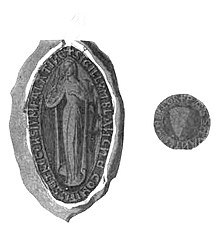
Whereas countess Marie clearly had possessed the requisite qualifications to act as regent — intimate connections with the Capetian and Plantagenet royal families, eleven formative years preparing to be countess, and sixteen years as countess consort — countess Blanche must have seemed singularly unsuited for such a role. A Navarrese speaker with a strong religious temperament, she had little experience as countess. She also faced an extraordinary challenge from the start: were her children, in fact, the legitimate heirs to the county? In 1190, when the unmarried Henry II left on the Third Crusade, the barons had sworn to accept his younger brother Thibaut III as count if Henry himself did not return. No one had anticipated that Henry would remain overseas seven years, marry there, and have children. Thus it was a legitimate question, in May 1201, whether Henry II's own daughters had better rights to Champagne than his brother Thibaut's infant daughter.
Blanche skillfully mastered a difficult situation. Mindful of king Philip's attempt to seize Flanders in 1191 in the absence of a male heir, she quickly made an alliance with the king the cornerstone of her regency. Within days of Thibaut's death she found Philip at nearby Sens, did homage — the first homage ever rendered by a countess — for her right of wardship and her dower lands, and promised not to remarry without his permission. As security for her conduct, she surrendered two castles bordering the royal domain (Bray-sur-Seine and Montereau-faut-Yonne) and her oneyear-old daughter to be raised at the royal court. Several days later the birth of a son, Thibaut IV, confirmed the soundness of her strategy: he was born heir apparent under royal protection.
Theodore Evergates - Aristocratic Women in Medieval France
#xii#xiii#blanche de navarre#countess of champagne#history of champagne#thibault iii de champagne#adèle de champagne#bérengère de navarre#philippe ii#thibault iv de champagne#theodore evergates#aristocratic women in medieval france
9 notes
·
View notes
Text
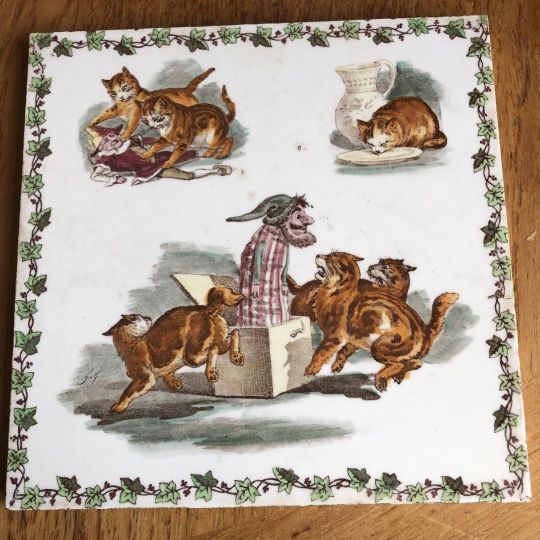
Antique Montereau Tile Trivet Cats Jack in the box. RareCollectable. ebay blim000
2 notes
·
View notes
Photo

Regardez comment notre client a soigneusement arrangé les coquilles de moule;) C’est un art! #moules #moulesfrites #curry #moulescurry #tontongrill #art #cusinart #restaurant #fruitsdemer #restaurantmontereau #restaurants #montereau #montereaufaultyonne #confluence #confluent (à Tonton GRILL) https://www.instagram.com/p/Cjpd_x0q6KM/?igshid=NGJjMDIxMWI=
#moules#moulesfrites#curry#moulescurry#tontongrill#art#cusinart#restaurant#fruitsdemer#restaurantmontereau#restaurants#montereau#montereaufaultyonne#confluence#confluent
2 notes
·
View notes
Photo

. . Teapot / HBCM Montereau / 1950- FRANCE . . HBCMの黄色のティーポット。3〜4杯用です。 . H13cm(+Lid) x W23cm x D13cm . ¥9350(¥8500+tax) . . #montereau #teapot #ティーポット #hgrs https://www.instagram.com/p/CgYy9MHPvhf/?igshid=NGJjMDIxMWI=
0 notes